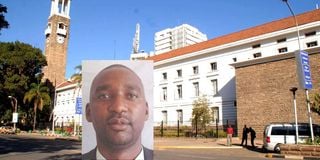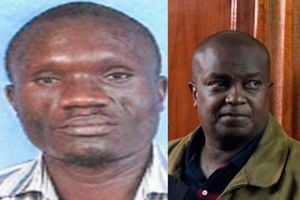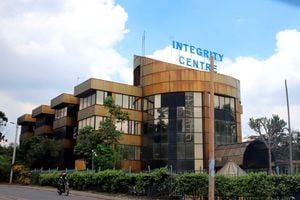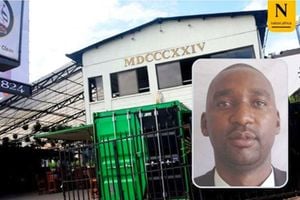
Court now says any assets suspected to be proceeds of graft should be kept out of the hands of the perpetrators pending final investigations.
The High Court has sounded a warning to corrupt public officials. Adjust your lifestyle or adopt austerity measures, if your assets or funds are frozen over suspicion of being acquired through corrupt conduct.
Anti-corruption division judge Nixon Sifuna said even pleas of hardship or tough cash-flow issues should not deter the court to allow the subject access part of the money, cars or assets.
The judge said the precautionary measures, taken by the court by preserving the funds and assets, are in the best interest of the common good of the entire Kenyan public rather than the narrow and often conflicted interest of the subject or the investigator.
“In this scenario, the court is usually the objective, impartial and un-conflicted umpire,” said the judge. Justice Sifuna added that the allegations and suspicion of corruption and the theft of public funds are of a very serious character that have to be attended with seriousness, carefulness and thoroughness.
“Such allegations need to spark alarm and alertness,” said the judge adding that corruption in the country was hitting alarming heights, to the extent of graduating from just a vice into a lifestyle.
Justice Sifuna said courts have discouraged corruption by employing effective and deterrent precautionary measures to arrest the vice before it can escalate into a monster.
Justice Sifuna was making a ruling in an application by a Nairobi County employee, Mr Nashon Wilson Kanani, whose assets and funds amounting to Sh600 million were frozen last year, over suspicion that they were acquired through corruption.

Court says Wilson Nashon Kanani (insert), a Nairobi County employee and co-director of popular club, 1824, has satisfactorily explained how they acquired the assets and funds.
Mr Kanani’s 12 bank accounts including those of his spouse were frozen and the official barred from accessing the money as well as high-end vehicles, pending conclusion of investigations conducted by Ethics and Anti-Corruption Commission (EACC).
The official sought court orders to allow him access Sh3 million on a monthly basis from any of the 12 frozen bank accounts, for purposes of operations of the family businesses.
He said he and his family have endured months of hardship, cash flow challenges, and rental arrears for various business remain unpaid subjecting him to untold losses. Mr Kanani said among the accounts frozen were his salary account, a move that had prevented him from having a means of providing basic needs for his family.
He is the development control officer at the city county and earns a monthly net salary of Sh55,866.
His roles at the Nairobi city county government include regulation of outdoor advertisement, monitoring and surveillance of all outdoor advertisement and calling advertisers to comply with approvals and payments for advertisements.
The EACC said Mr Kanani abused his position of trust by receiving revenue meant for the county government through bank accounts held by his private companies and spouse. The Commission said it concluded investigations and established Mr Kanani and his companies were in possession of unexplained assets amounting to Sh643.2 million. The cash was allegedly received from January 1, 2016 to October 31, 2022.
They include land, motor vehicles, cash recovered and cash deposits. Among the assets are an apartment in Nairobi valued at Sh6.5 million, a house in Busia valued at Sh11.2 Million and land in Naivasha valued at Sh3.5 million.
The court was informed that Mr Kanani acquired four high-end motor vehicles — Toyota Land cruiser V8, Mercedes Benz E 300, Mercedes Benz E350 and Toyota Alphard in a span of five years. The EACC further claimed that Mr Kanani is a co-director of popular Club 1824 on Lang’ata Road.
The commission also claimed that the public officer was previously convicted of a corruption offence involving soliciting for bribes while performing the same duties with the defunct city council of Nairobi.
Investigations into his five bank accounts revealed that he received cumulative deposits of Sh506 million between January 2016 and October 31, 2022. Mr Kanani wanted the court to free his salary account at Equity Bank, and two bank account belonging to his daughters and those of his wife. He also wanted, in the alternative, the court to lift an order seizing two Toyota Land Cruisers and a parcel of land in Naivasha, registered in the name of Peter Njagi Njeru.
He said he has since forwarded to the EACC forensic audit reports as well as bank statements, explaining and demonstrating their source of wealth and proof of the businesses and income. The official said he is an established businessman with diverse sources of revenue. Bridge Side Farm, he said, was joined wrongly in the proceedings as his directorship is nominal.
He also his spouse has been dragged into the case for being the wife without any basis. He further said EACC did not demonstrate any dealings between his companies and the county government.
He said his businesses are conducted independent of him and has no correlation with the county government of Nairobi and some of the parcels of land included in the freeze do not belong to him. EACC said the source of over Sh600 million remains unexplained.
The commission submitted that the evidence he presented failed to discount the cloud of doubt and suspicion over the manner in which the bank deposits and the motor vehicles and land were acquired.
In the ruling, Justice Sifuna said that once there is a reasonable suspicion that funds or assets have been acquired through corrupt activities, conduct or are the proceeds of corruption, they must be quarantined until the person concerned has satisfactorily explained their source or has been vindicated by the findings or credible investigations or court proceedings.
“Where assets or funds suspected to have been acquired by corrupt conduct and whose source had not been sufficiently and satisfactorily explained, are in interim quarantined on the basis of credible preliminary investigation, prima facie, preliminary evidence,” the judge said.
According to Justice Sifuna, it would be cynical for the court to with one hand to freeze assets and funds and with the other hand, with eyes closed, allow the subject to access and appropriate them, even part of it, in the name of allowing the subject to maintain his or her lifestyle or even as a form of subsistence allowance.
He said such funds should be kept out of reach, pending conclusive investigations. “I would call this the indivisibility doctrine where the money or asset is treated as one unit. An attempt of fragmenting the money or asset into units for purpose of the subject access, is my view a circumvention of the legal consequences of the wrongful act of illegality when it is eventually proved,” the court said.
The court said any subject whose funds or assets are by due process frozen, has a choice of rationalising his or her lifestyle or adopting other austerity measures to navigate through the transition period. “The money is no longer the subject’s free property,” he ruled.
Other than Mr Kanani, EAC named his spouse, Willy Walla International Limited, Wilcoreg Limited, Bridge Side Farm, and Regineez Enterprises Limited, companies linked to them, as respondents in the case.













